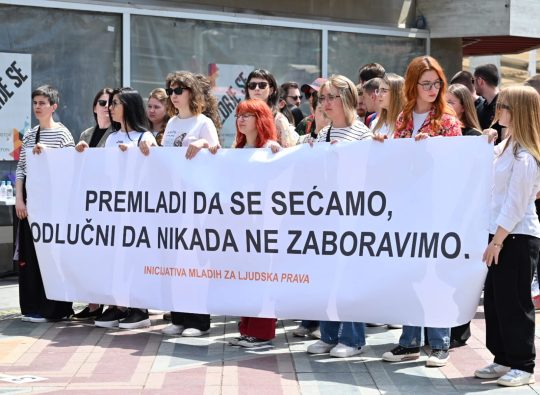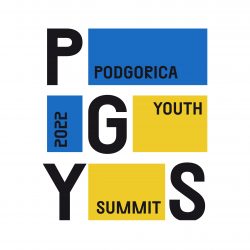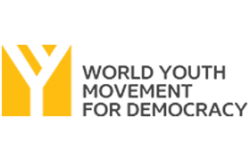Statements given by various governmental representatives, the media’s headlines, and the observed political climate that followed the verdict show us that the Republic of Serbia is not ready to face its own past. Instead, Serbia actively obstructs all efforts for clarification of the past and refuses to face its own responsibility for the wars during the 1990s. There are a large number of statements by state officials completely disregarding the work of the Tribunal, even though it was specifically tasked with establishing the facts surrounding the deaths and disappearances of more than 18,000 persons during the wars in Former Yugoslavia.
We are witnessing the frequent and increased legitimization of convicted war criminals through their unhindered presence in the public sphere. With this in mind, we would like to mention recent examples of promoting war criminals in public, such as: meeting of Tomislav Nikolić, the former President of Serbia, with Momcilo Krajisnik, a series of public appearances of Veselin Sljivancanin at forums organized by the Serbian Progressive Party, a lecture given by Vladimir Lazarevic at the Military Academy. He, along with Nikola Sainovic (also a convicted war criminal, yet currently serving as a member of the Main Board of the Socialist Party of Serbia), were ceremoniously welcomed by the state’s top representatives.
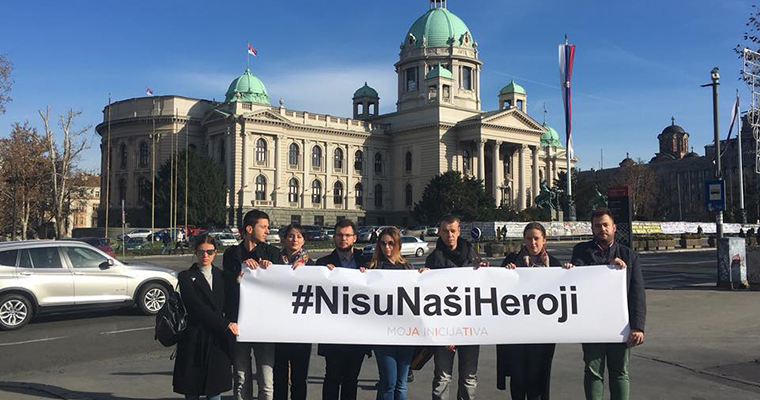
DENIAL
Blatant unwillingness to acknowledge the transgressions of Serbia’s recent past, as well as the flagrant denial of established facts of the ICTY, can be clearly seen in Ana Brnabic’s (Prime Minister of Serbia) statement regarding the verdict. Specifically, she commented on the whole event with one empty statement, saying that “we need to leave the past behind us” and that “we should look to the future so that finally we have a stable country.”
That was it. There was no question about responsibility, nor about the victims. Minister of Justice, Nela Kuburovic, went one step further, openly discrediting the Tribunal with the statement that “the Mladic judgment was expected, having in mind the previous verdicts of the Hague Tribunal against the Serbs”.
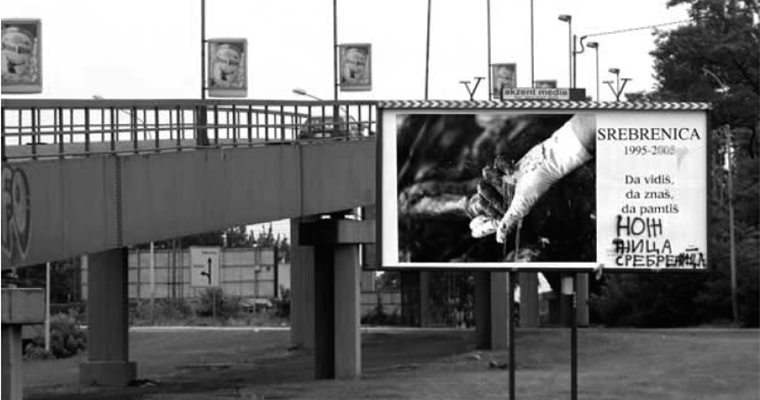
Such statements and the overall political atmosphere are not new. On the contrary, it just proves the continuity of the negation of the crime, the same denial that led to the adoption of the embarrassing Declaration of Srebrenica in the National Assembly of the Republic of Serbia. Recall, the Srebrenica Declaration was adopted in 2010, and had no mention of genocide in its text, although it refers to the verdict of the International Court of Justice (ICJ), which qualified crimes in Srebrenica in July 1995 as a genocide.
OBSTRUCTION
In addition to the open denial of the facts, we are also witnessing the strong pressures and obstruction of attempts to discover the truth, face the past, and implement transitional justice mechanisms. The object of obstruction is certainly the refusal of Serbia to extradite two members of the Serbian Radical Party, who are charged with influencing the witnesses in the process against the leader of the Serbian Radical Party, Vojislav Seselj. The Tribunal (ICTY) issued a warrant to Serbian authorities for the arrest and detention of these two persons more than a year ago.
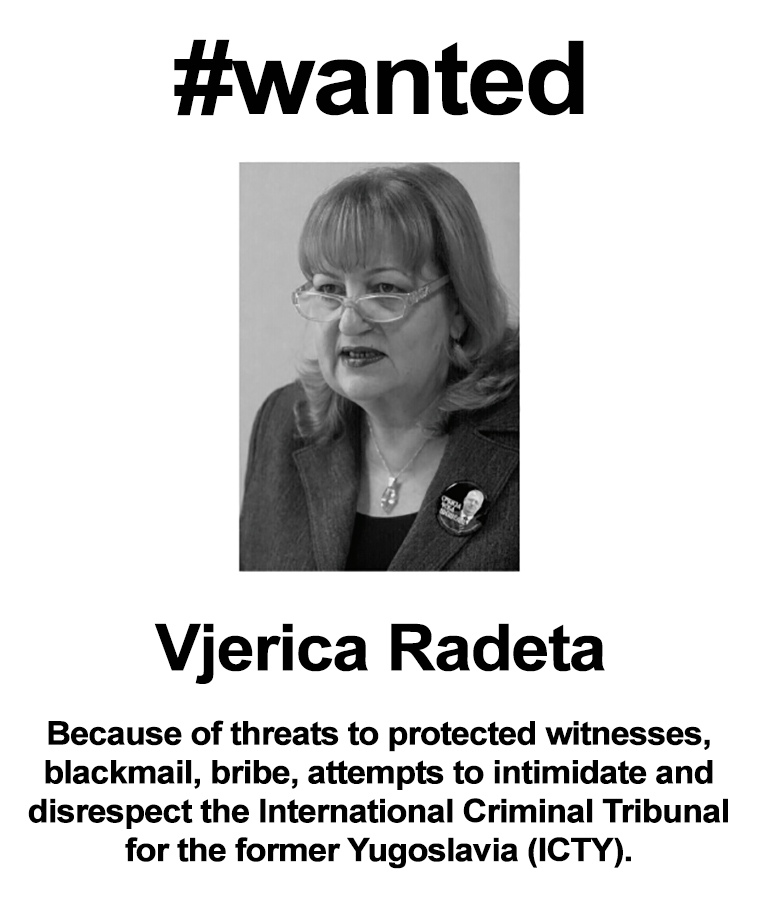
Of great importance is the case of “Mladic’s accomplices “, the trial against 11 persons accused of hiding Ratko Mladic in the period from 2002 to 2006. The epilogue of this trial is nine acquittals because of the lack of evidence and one six month probation verdict. One of the accused died in the early stages of the proceedings. What attracted the attention of the public on the last days is the response of the Public Prosecutor to the request of the Balkan Investigative Network (BIRN) to indict them against Mladic’s accomplices. The indictment was not delivered to BIRN since it was classified as a state secret. The Public Prosecutor’s reasoning is that the indictment would harm the international reputation of Serbia. It is also indicative that this indictment, as well as the process itself, persuaded 11 others to deal with Ratko Mladic in Topčider, who had never been questioned.

We are also reminding on the murder of Dragan Jakovljević and Dražen Milovanović at Topčider military facility on October 5, 2004, which, despite the work of different prosecution offices, commissions and other state institutions, was never prosecuted.
Today, 13 years later, there is no improvement in this case, even though Serbian Government has formed a new commission in December 2016, that disappeared without a trace. Like in the case of Mladic’s accomplices indictment, prosecution of the responsible for Topčider case is being delayed for the same reasons- so the truth about the state support to Ratko Mladic would not be revealed.
Speaking of court cases, the estimation is that currently in Serbia there are 3000 war crime suspects, while, according to estimation of former war crimes State Prosecutor Vladimir Vukčević, 80 of them are living in Belgrade. It is very important to mention that Serbia did not have a war crimes State Prosecutor for almost a year and a half. That fact only shows the ignorant attitude towards war crimes and necessity of its prosecution. As a consequence of not having a Prosecutor, the indictment for Srebrenica case before the War Crimes Chamber of Higher Court in Belgrade has been rejected. The indictment charged 8 members of specialised department of Ministry of Interior in Republika Srpska for involvement in murders of hundreds of Bosniaks in village of Kravice in July of 1995. It is important to emphasize that domestic judiciary has once again avoided to qualify Srebrenica as genocide, although many international courts’ verdicts are confirming the crimes committed in and around Srebrenica in July 1995 are genocide.
Although found guilty before International Court of Justice (ICJ) for not preventing and not punishing genocide (including hiding Ratko Mladic), Serbia is still persistently avoiding facing this topic. The word genocide is banished from public discourse and state acts, and in 2015, even the public commemoration of the 20 years since the Srebrenica genocide was banned.
DEMANDS
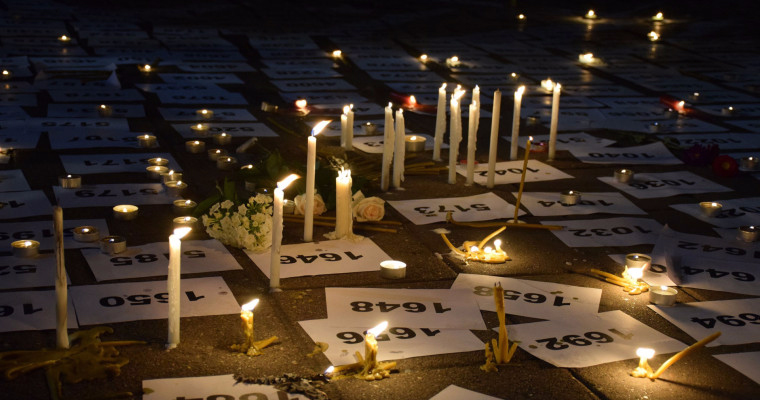
After all of this, we demand from the Republic of Serbia to clearly determine itself towards its own past and to take responsibility for the crimes committed in the wars in the former Yugoslavia with the following concrete moves:
-
Pass a declaration in the National Assembly that will adequately address the genocide committed in Srebrenica, as well as the victims of this genocide;
-
To commemorate July 11th as a day of remembrance for victims of genocide in Srebrenica;
-
Respect and acknowledge the verdicts of domestic and international courts that determine the facts and accountability related to the wars in the former Yugoslavia;
-
Stop the promotion and glorification of convicted war criminals at political rallies, state ceremonies and military academies;
-
Fully implement the National War Crimes Prosecution Strategy for the period from 2016 to 2020, especially the part relating to the improvement of curricula. (In schools all education surrounding crimes will be taught based on court-established facts);
-
Unequivocally support the establishment of the Regional Commission for the Establishment of Facts on War Crimes and Other Serious Human Rights Violations Committed in the Territory of the former Yugoslavia – RECOM.

